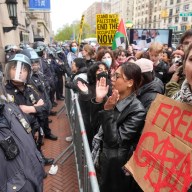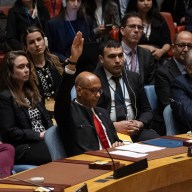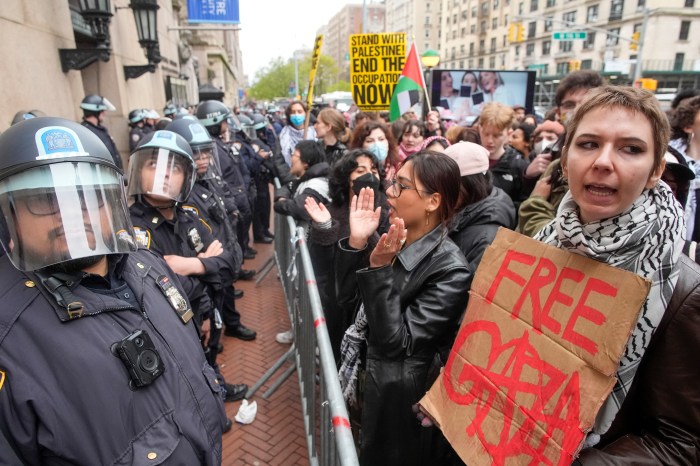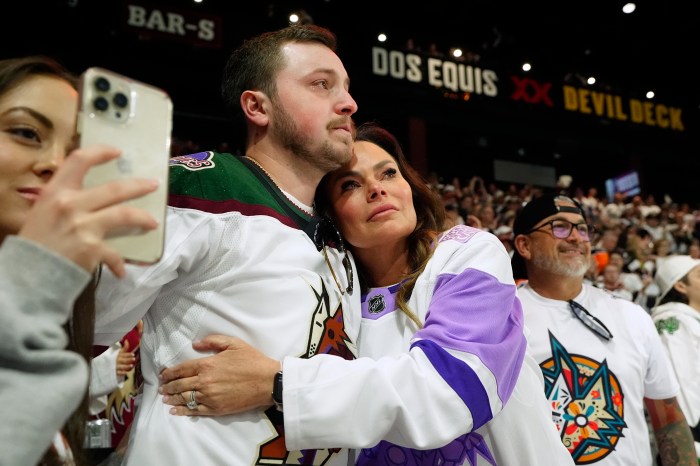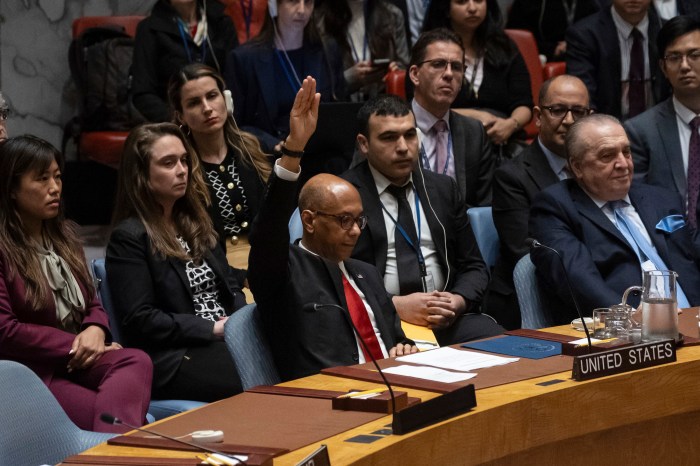 Jeanne Moreau and Marcello Mastroianni play a couple who’ve fallen out of love in “La Notte.”
Jeanne Moreau and Marcello Mastroianni play a couple who’ve fallen out of love in “La Notte.”
Credit: The Criterion Collection
‘La Notte’
Criterion Collection
$39.95
Bored, attractive, well-dressed Europeans were all over screens in the early 1960s, some of them in “La Dolce Vita” and “Last Years at Marienbad,” but most of them in the films of Michelangelo Antonioni. Starting with “L’Avventura,” the Italian filmmaker made what was loosely called “the trilogy of alienation.” (Although if we’re being sticklers, it’s really a quadrilogy, including 1964’s “Red Desert,” as well as 1961’s “La Notte” and 1962’s “The Eclipse.”) In these, pretty actors — Monica Vitti, who was in all of them, plus Alain Delon and Gabriele Ferzetti — wandered underpopulated cities, weighed down by idle wealth. His is a style easily lampooned, or worse: Pauline Kael loved “L’Avventura,” but detested its follow-up, “La Notte,” in which she took umbrage with people being bored at all when there’s so much in life worth loving.
So much is made of the dehumanization in Antonioni’s films that it’s easy to forget they’re about the battle between emotion and the forces that extinguish emotions.“La Notte” is a modernist masterwork about how modern life is rubbish, but it’s also a grim relationship film about desiccated love. Marcello Mastroianni and Jeanne Moreau play a couple. He’s an esteemed novelist who has lost passion for work, and much else. He barely notices when, after a party for his latest book, she wanders off, aimlessly strolling to the outskirts of Milan, where new money has yet to raze decaying buildings and patches of wasteland. The two attempt a date night, but only wind up at a party where they hook up (or try to)with others, including the hotcha, self-aware daughter of an industrialist (Vitti).
There’s another movie going on in “La Notte,” a more spirited one in which Mastroianni and Moreau’s characters are younger and madly in love. We only get glimpses of this, in them revisiting places they used to frequent or with a love letter he once wrote her that he can no longer ID as his own. Watching it is like watching “Before Midnight,” but not “Before Sunrise” and “Before Sunset,” and wondering what Julie Delpy and Ethan Hawke ever saw in eachother. (The major difference is at least Delpy and Hawke talk.) Their love is at this point purely abstract; what made them fall for eachother is a forgotten dream.
The stars allegedly hated making “La Notte,” where they’re called on to do very little but stand and look disaffected. But they’ve rarely been more affecting. Mastroianni has disappeared so deeply inside himself he can barely get excited over macking on Monica Vitti. And Moreau, at this point in her career largely used as an ice queen, very carefully radiates despair. While barely moving or speaking, she gives possibly her most human performance.
Of course, this is the height of “Antoniennui,” meaning that no one much moves or speaks or seems to have much on their mind. But he conveys feeling through artificial means. Antonioni carefully places his actors so they’re separated by boundaries, or stuck in place. (One shot has them standing still next to two trees that mirror their positions.) The use of reflecting windows further suggests the past as a ghost, albeit one haunting more by suggestion. It’s not just the 1960s and changing times and the bourgeois life that hold our heroes back. This is a portrait of a couple who’ve stayed together too long to start over again, who failed to call it quits at the right time and now lack energy. As with most of his other films, Antonioni is trying to film the intangible — emotions and neuroses that don’t particularly lend themselves to drama or even, necessarily, cinema. But he finds a way to capture them anyway.
Also out:
‘White House Down’
As with “Deep Impact” vs. “Armageddon,” “Antz” vs. “A Bug’s Life” or “No Strings Attached” vs. “Friends With Benefits,” America was stuck with a decision: Which of the two same films to make a hit and which to make less of a hit? Of the dueling “’Die Hard’ in the White House” pictures this year, the lower-rent “Olympus Has Fallen” won, while the super-budgeted “White House Down” actually tanked. We won’t make great claims for it, but the latest from ensemble disaster maven Roland Emmerich (“Independence Day”) is cheerfully ridiculous, and has Channing Tatum as its deadpan John McLane. May it live long on the small screen.
‘The Hobbit: An Unexpected Journey: The Extended Edition’
If you thought it was ridiculous that it took Peter Jackson 169 minutes to tell a third of a slender fantasy novel for kids, then guess what? Now it’s 13 minutes longer. Perhaps there’s more of the sick hedgehog who has to be resuscitated?
‘Mad Men: Season Six’
Don Draper et al. finds their way into the late 1960s, making room for such historical events as the MLK and RFK assassinations, plus a cameo from “Planet of the Apes.”
‘Passion’
Brian De Palma makes his first “Brian De Palma” film in ages —that is to say, a delightfully twisty, trashy thriller with split screen and zooms. Rachel McAdams and Noomi Rapace duke it out (and sometimes make out) in the cut-throat world of advertising.






